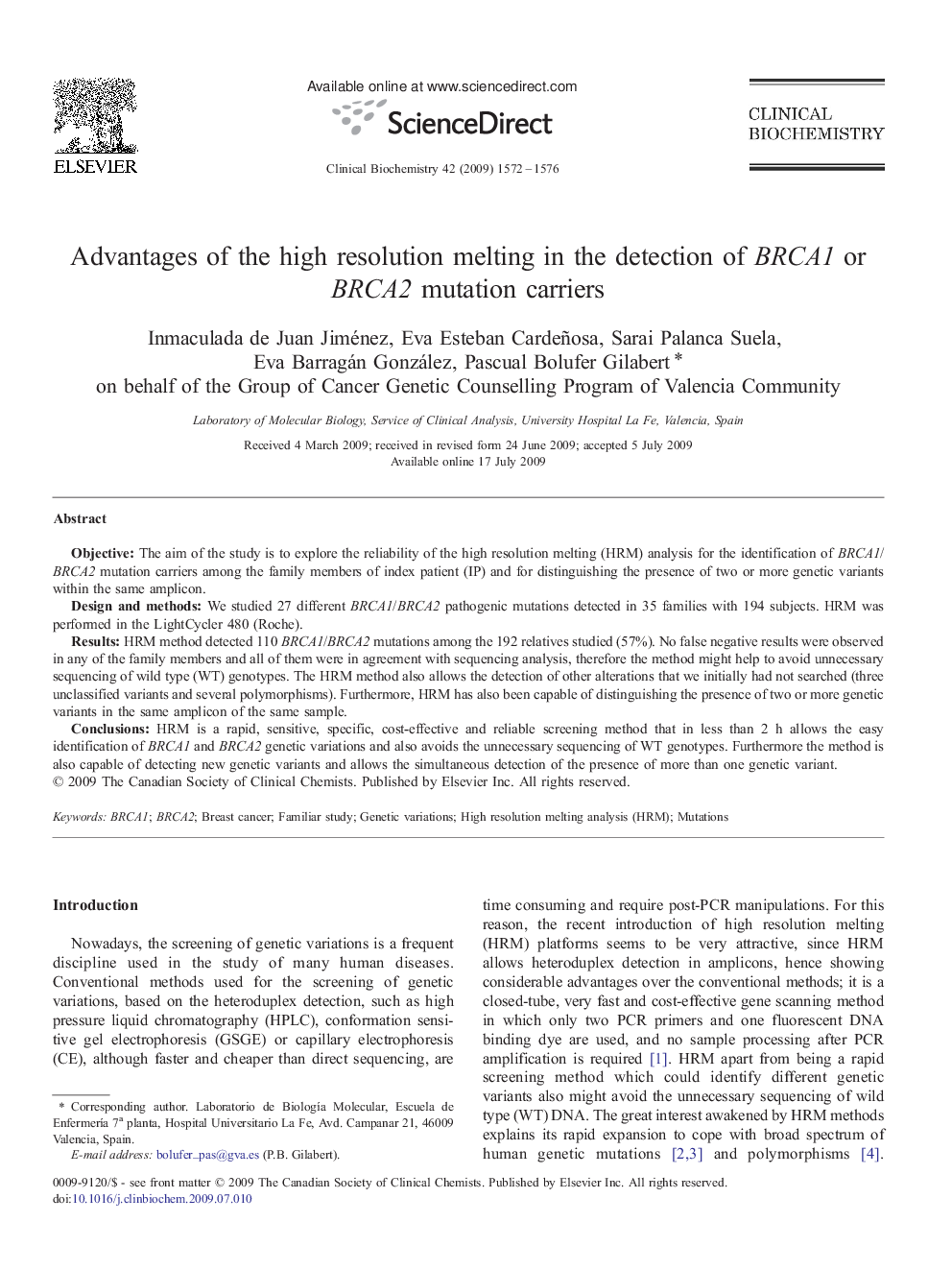| Article ID | Journal | Published Year | Pages | File Type |
|---|---|---|---|---|
| 1969481 | Clinical Biochemistry | 2009 | 5 Pages |
ObjectiveThe aim of the study is to explore the reliability of the high resolution melting (HRM) analysis for the identification of BRCA1/BRCA2 mutation carriers among the family members of index patient (IP) and for distinguishing the presence of two or more genetic variants within the same amplicon.Design and methodsWe studied 27 different BRCA1/BRCA2 pathogenic mutations detected in 35 families with 194 subjects. HRM was performed in the LightCycler 480 (Roche).ResultsHRM method detected 110 BRCA1/BRCA2 mutations among the 192 relatives studied (57%). No false negative results were observed in any of the family members and all of them were in agreement with sequencing analysis, therefore the method might help to avoid unnecessary sequencing of wild type (WT) genotypes. The HRM method also allows the detection of other alterations that we initially had not searched (three unclassified variants and several polymorphisms). Furthermore, HRM has also been capable of distinguishing the presence of two or more genetic variants in the same amplicon of the same sample.ConclusionsHRM is a rapid, sensitive, specific, cost-effective and reliable screening method that in less than 2 h allows the easy identification of BRCA1 and BRCA2 genetic variations and also avoids the unnecessary sequencing of WT genotypes. Furthermore the method is also capable of detecting new genetic variants and allows the simultaneous detection of the presence of more than one genetic variant.
